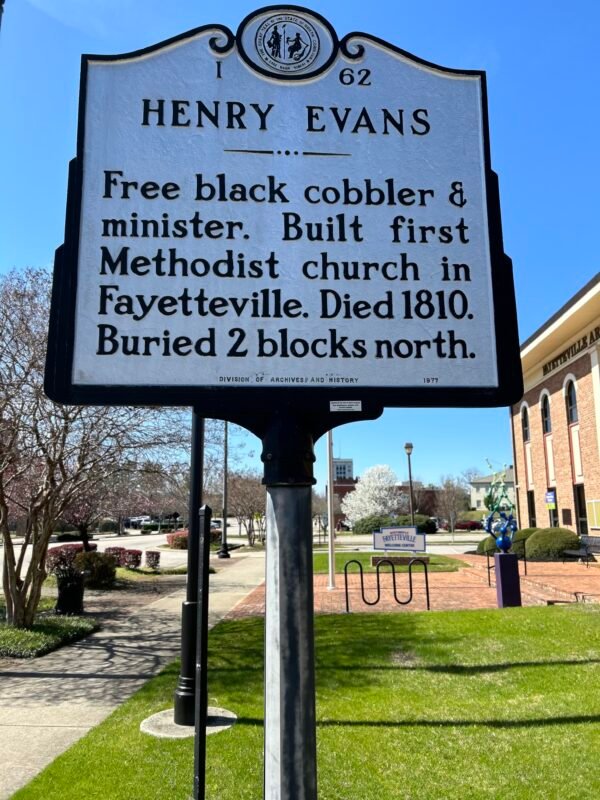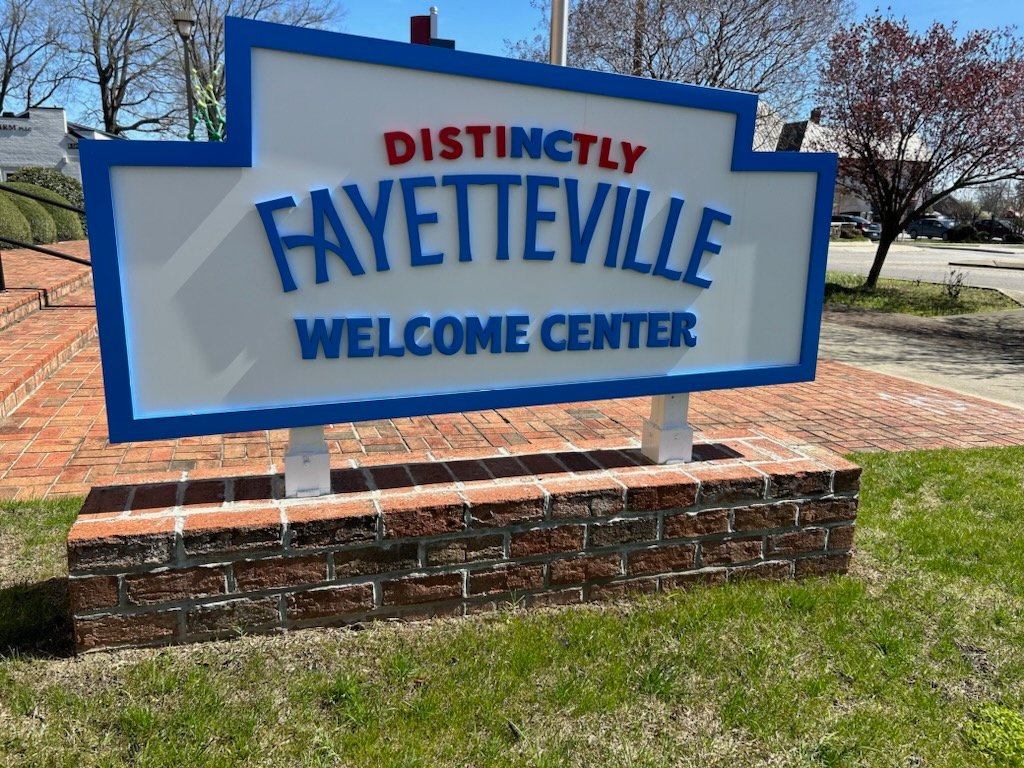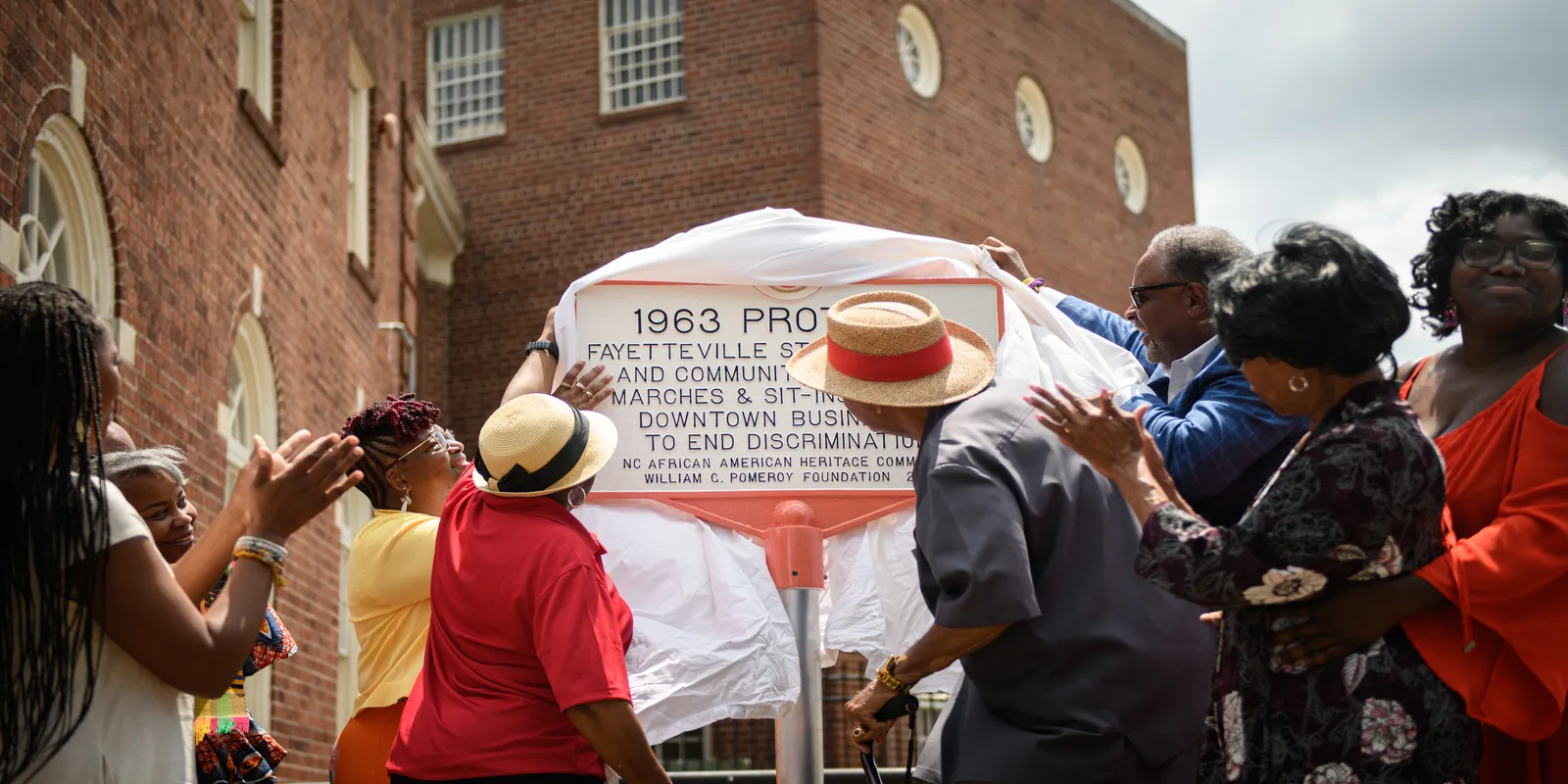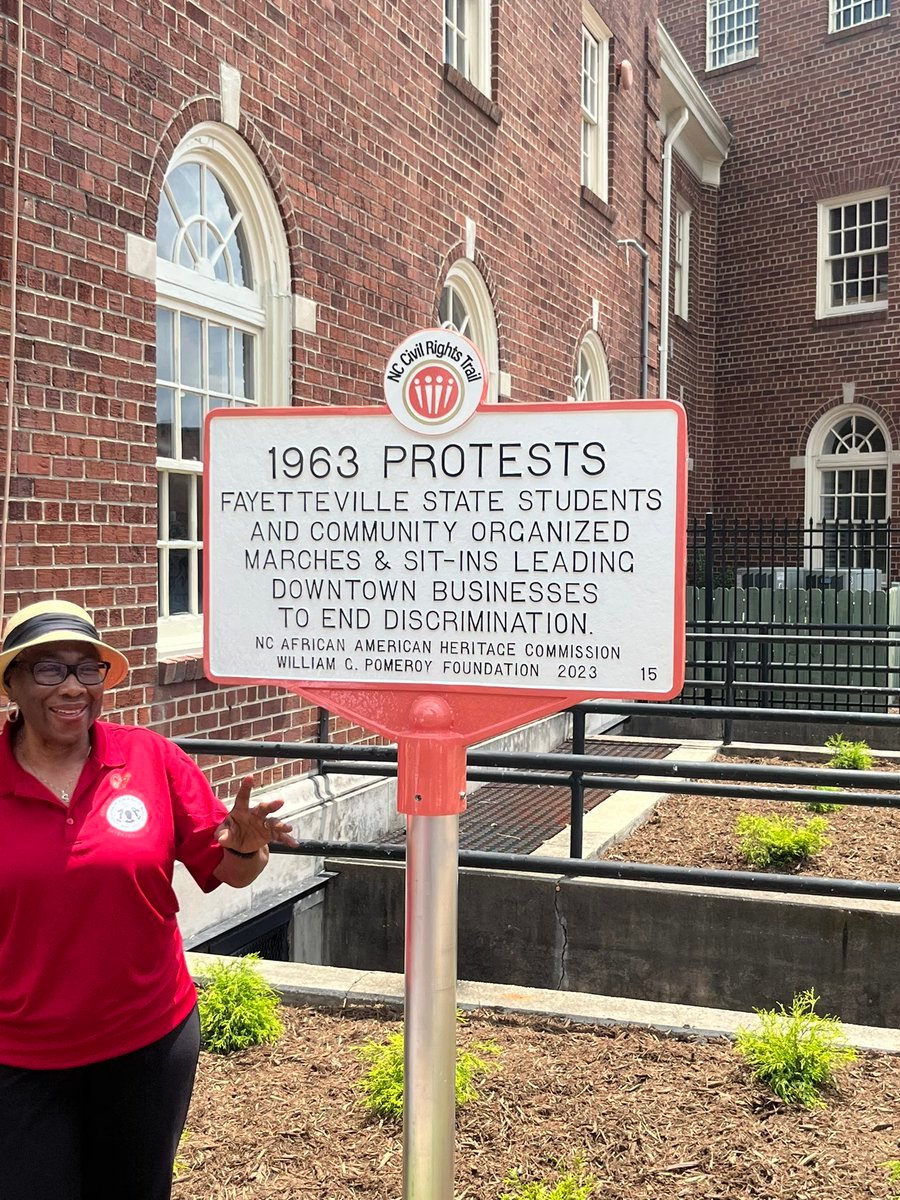Listening to JoAnn Adams of Fayetteville share stories about African American history in the community rekindled stories of historic landmarks and once-thriving black neighborhoods in Fayetteville. The writer felt like a kid during story time, sitting in Indian style while listening intuitively to the storytelling of Fayetteville’s rooted African American history. The only thing lacking was a blanket and a warm cup of tea.
The stories shared by Adams deserve to be highlighted, as each city has its own story—from prominent historical sites to the community’s local heroes.
Learning history from the local library, research, publications, and even long-term residents like Adams is vital to learning the city’s identity and heritage connection, which provides a sense of belonging.
Historical markers, for instance, help preserve the history and serve as a token reminder to value those stories for generations to come. “Markers tells the stories of people, places, and things at a time that were relevant to that time. It lays dormant until somebody comes along and decides to bring it back to the forefront,” Adams stated.


African American Heritage Trail – Historical Marker of Henry Evans; Photo Credit: Tracey Morrison/The Exclusive Press
Fayetteville’s rich African American history is unsealed like a discovery treasure chest in our very own backyard. The African American Heritage Trail, for instance, is a great educational adventure that not only monumentalizes history but also maintains our sense of community by remembering the contributions of African American leaders in Fayetteville-Cumberland County.
Fayetteville’s African American Heritage Trail consists of 18 historical markers, exploring the history behind each landmark. The African American Heritage Tour, free to the public, leads tourists on a scavenger hunt through the city, exploring historic places and landmarks. The trail stimulates education as tourists can learn about the city’s early history, including the slavery era, free black enterprise, religion, education institutions, and much more.

The first marker begins in downtown Fayetteville at 245 Person Street and runs through Fayetteville State University. Other historical stops of the trail include Fifer’s Grave, Evans Metropolitan A.M.E. Zion Church named after Methodist Preacher Henry Evans, Saint Ann Catholic Church, Cross Creek Cemetery (Brookside), Saint Joseph’s Episcopal Church, Orange Street School, E.E. Smith Monument, Martin Luther King, Jr. Park, Sandhills Family Heritage Center, Bethel AME Zion Church, Simon Temple A.M.E. Zion Church, Museum of the Cape Fear Historical Complex, Airborne and Special Operations Museum, Fayetteville History Museum, and the Market House.
The historical markers also detail the legacy of prominent figures who had ties to Fayetteville, such as Charles W. Chesnutt (essayist, political activist, and lawyer), Hiram R. Revels (the first African American to serve in US Congress), Lewis Leary (African American harnessmaker), and Omar Ibn Said (Islamic Scholar and Slave Narratives Author).
Wait, there’s more! The induction of the city of Fayetteville into the North Carolina Civil Rights Trail revealed a much richer African American history, highlighting the city’s 1963 protest segregation thanks to community trailblazers like Adams.
Known for her research on the city’s African American history, Adams pushed for the city to apply for the NC Civil Rights Trail through an initiative led by the NC African American Heritage Commission with funding from the William G. Pomeroy Foundation.
According to Adams, Mayor Mitch Colvin expressed interest in the initiative after she presented the historic marker program during a city council meeting three-four years ago. Brook Redding, the city’s Special Project Manager, closely collaborated with Adams and other community stakeholders to execute the initiative.
Adams was happy with the city’s emphasis on not forgetting the past and promoting community revitalization and preservation of the community’s African American heritage. Last year, Adams was present for the unveiling of the NC Civil Rights Trail Marker. She stood side by side with former city councilwoman Shakeyla Ingram, who recognized her advocacy for pushing for a civil rights marker.
Communities are grateful to have history enthusiasts like Adams pushing our history. She believes citizens should always remember the rich history that exists right here in Fayetteville, especially for future generations.
“It’s important for people, especially young people, to know that their history didn’t start the moment they were born,” Adams state

“They had ancestors, and their history is important because it helps build self-esteem to know where you came from, how strong your ancestors were, and how they made their lives much better,” she added.
Historical markers serve as powerful tools for remembering the past, honoring the achievements of individuals and communities, and preserving cultural heritage. Whether through inscriptions on stone, monuments, or commemorative plaques, markers continue to play a vital role in shaping collective memory and understanding of history. Adams highlighted, “If you don’t know your history, you will not connect to your past.”
Markers are a big factor in creating a visible connection with the community’s history and culture.
To learn more about historical marker programs, visit the North Carolina Heritage Commission website at www.aahc.nc.gov. Visitors can also learn more about the African American Heritage Trail by visiting www.distinctlyfayettevillenc.com or visiting the tourism information center in person during their hours of operation, Monday through Friday, 8 a.m. to 5 p.m.


